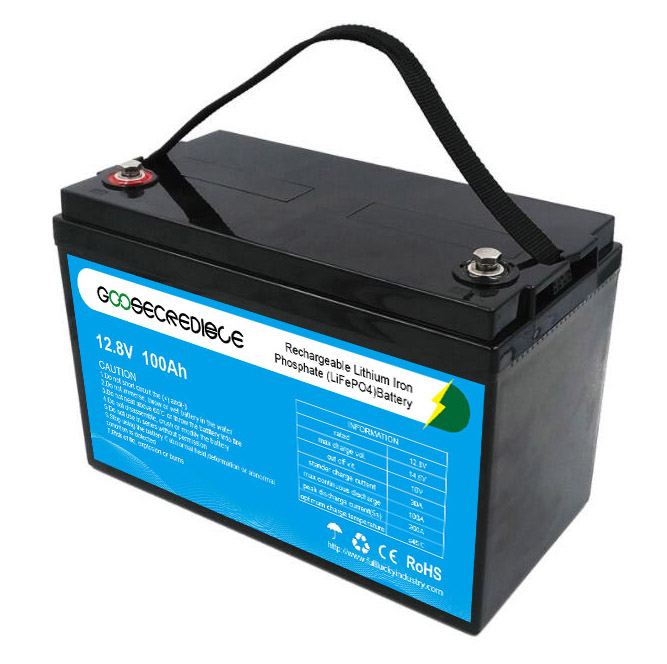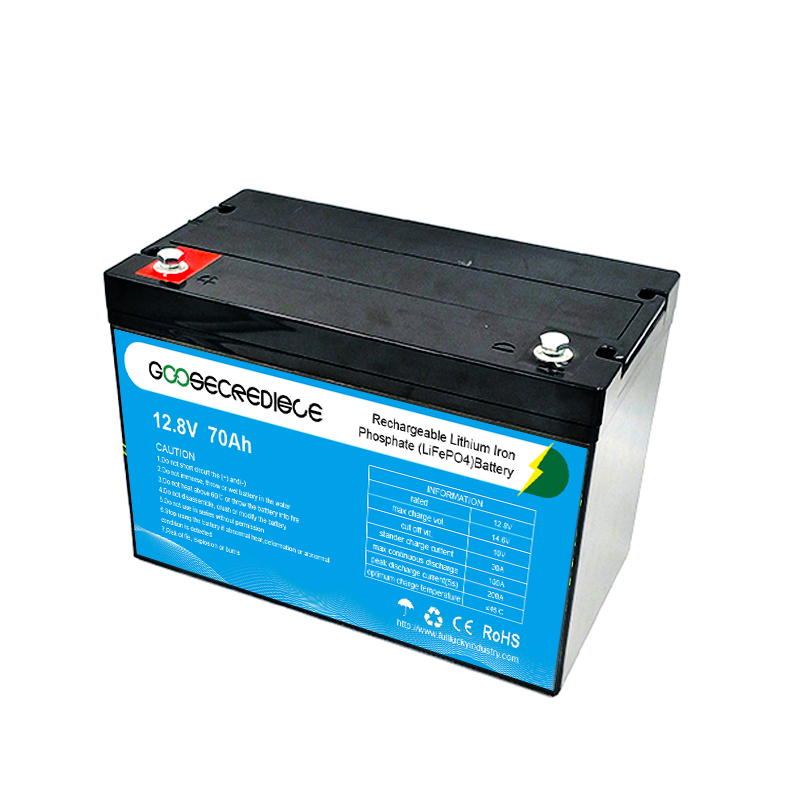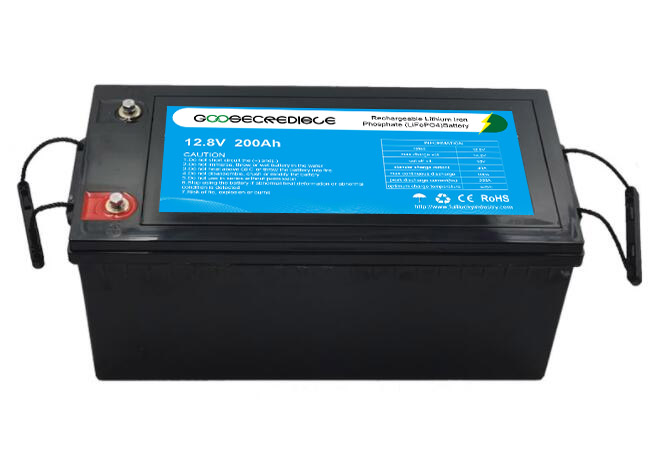How to Choose the Best Lifepo4 Battery Supplier for Your Business Needs
Lithium Iron Phosphate (LiFePO4) batteries are becoming increasingly popular in various industries, from electric vehicles to renewable energy systems. With the growing demand for this technology, choosing the right supplier becomes crucial. A reliable supplier not only ensures high-quality products but also provides timely delivery and competitive pricing. Here are some factors to consider when choosing the best LiFePO4 battery supplier for your business needs.
Quality Control Standards
The quality of LiFePO4 batteries depends on the manufacturing process, and a reliable supplier must have strict quality control standards in place. Look for suppliers who have certifications such as ISO 9001, ISO 14001, or UL. These certifications ensure that the supplier follows specific quality control protocols, and their products meet international standards.
Range of Products
Different businesses have varying needs, and a good LiFePO4 battery supplier should offer a wide range of products to cater to these needs. Whether you need batteries for electric vehicles, solar energy systems, or backup power, the supplier should have a variety of options to choose from. Also, ensure that the supplier can provide customized solutions to meet your specific requirements.
Manufacturing Capacity
The supplier’s manufacturing capacity is another crucial factor to consider. A reliable supplier should have a large production capacity to meet your needs promptly. Also, they should have advanced manufacturing equipment and processes to ensure consistent quality.
Pricing and Payment Terms
Pricing is a critical factor when choosing a LiFePO4 battery supplier, but it should not be the only consideration. Look for suppliers who offer competitive prices without compromising on quality. Additionally, the supplier should have flexible payment terms that suit your business’s financial needs.
Delivery Time and Logistics
The supplier’s delivery time and logistics play a significant role in ensuring that your business operations run smoothly. Look for suppliers who have efficient delivery systems and can provide timely delivery. Additionally, they should have reliable logistics partners to ensure that the products reach you safely and on time.
After-Sales Service
A reliable LiFePO4 battery supplier should provide excellent after-sales service. This includes technical support, product warranty, and replacement options. Ensure that the supplier has a responsive customer service team that can address any issues promptly.
Reputation and Customer Reviews
The supplier’s reputation and customer reviews can give you an idea of their level of customer satisfaction. Look for suppliers who have a good reputation in the industry and positive customer reviews. You can check online forums, social media platforms, and review sites to get feedback from other customers.
In conclusion, choosing the right LiFePO4 battery supplier is crucial to the success of your business operations. By considering factors such as quality control standards, range of products, manufacturing capacity, pricing, delivery time, after-sales service, and reputation, you can make an informed decision and find a reliable supplier that meets your business needs.
Time: 2023-3-27
Wholesale Lifepo4 batteries are widely used in various applications due to their high energy density, long cycle life, and excellent performance in extreme temperatures. With the increasing demand for these batteries, many suppliers have started selling them online. While online purchasing of wholesale Lifepo4 batteries is convenient and time-saving, it is crucial to consider certain factors before making a purchase. In this blog, we will discuss the important factors to consider before purchasing wholesale Lifepo4 batteries online. Quality and Safety Standards: Before making a purchase, it is essential to ensure that the supplier adheres to strict quality and safety standards. Wholesale Lifepo4 batteries should be certified and tested according to international standards like CE, RoHS, UL, and ISO. These certifications ensure that the batteries meet the required standards for safety and performance. Battery Specifications: It is crucial to check the battery specifications before making a purchase. The specifications include capacity, voltage, discharge rate, cycle life, and temperature range. The specifications should match the application's requirements to ensure optimal performance. Battery Application: Before purchasing, it is essential to determine the application for which the battery will be used. This will help in selecting the appropriate battery with the required specifications. Different applications have different requirements for voltage, capacity, and discharge rate. Reputation of the Supplier: It is crucial to check the reputation of the supplier before making a purchase. The supplier should have a good reputation for quality products and timely delivery. Online reviews and feedback...
Time: 2023-9-10
Introduction: Reliable power supply is essential for numerous applications, ranging from electric vehicles to renewable energy systems. A key component in ensuring uninterrupted power is the battery charger. In this article, we will explore the benefits and features of an efficient 48V LiFePO4 battery charger, which is known for its reliability and effectiveness in providing a stable power supply. Efficiency and Energy Savings: One of the main advantages of a 48V LiFePO4 battery charger is its high efficiency. Unlike traditional chargers, which can waste a significant amount of energy during the charging process, a LiFePO4 charger has a conversion efficiency of up to 98%. This means that almost all the energy from the electrical source is used to charge the battery, resulting in minimal energy loss and significant cost savings in the long run. Reliability and Safety: Safety is paramount when it comes to battery charging. LiFePO4 battery chargers are designed with multiple safety features to prevent overcharging, overheating, and short circuits. They incorporate advanced technologies such as overvoltage protection, overcurrent protection, and thermal regulation, ensuring a reliable and safe charging process. Additionally, LiFePO4 batteries themselves are known for their thermal and chemical stability, further enhancing the overall safety of the charging system. Fast Charging and Extended Battery Life: With the advancement of technology, LiFePO4 battery chargers have evolved to provide faster charging times without compromising the battery\'s lifespan. These chargers employ advanced charging algorithms that optimize the charging process, allowing for quicker charge times compared to...
Time: 2023-8-20
The manufacturing industry plays a crucial role in the global economy, driving innovation and creating products that improve our daily lives. To keep up with the demands of modern manufacturing processes, industrial battery chargers have become an essential component in powering the future of this industry. These chargers provide a reliable and efficient source of energy, ensuring uninterrupted production processes and reducing downtime. Industrial battery chargers are designed to meet the specific power requirements of manufacturing facilities. They are capable of charging a wide range of batteries used in industrial applications, including lead-acid, lithium-ion, and nickel-cadmium batteries. These chargers are engineered to deliver the precise voltage and current needed to charge the batteries efficiently and safely. One of the key advantages of industrial battery chargers is their ability to provide consistent power supply to manufacturing equipment. This is particularly important in industries where downtime can result in significant financial losses. With a reliable battery charger, manufacturers can ensure uninterrupted production, minimizing disruptions and maximizing productivity. Furthermore, industrial battery chargers offer flexibility and scalability. They can be customized to meet the specific power requirements of different manufacturing processes. Whether it is a small-scale operation or a large-scale manufacturing facility, these chargers can be tailored to provide the right amount of power needed for optimal performance. Safety is another critical aspect of industrial battery chargers. These chargers are equipped with advanced safety features to protect against overcharging, short circuits, and overheating. By utilizing state-of-the-art charging algorithms, they can...
Time: 2023-8-28
Introduction: In recent years, the demand for seamless and uninterrupted communication networks has surged, especially with the increasing reliance on mobile devices and the internet. However, ensuring reliable network coverage in remote areas or during power outages remains a challenge. In response, the implementation of lithium battery-powered base stations has emerged as a viable solution. This article delves into the benefits and possibilities offered by these innovative base stations in enhancing communication networks. 1. Lithium Battery-powered Base Stations: An Overview Lithium battery-powered base stations are communication infrastructure units that utilize lithium-ion batteries as their primary power source. These advanced base stations offer a multitude of advantages over traditional systems, making them an excellent alternative for boosting communication networks. 2. Improved Network Coverage in Remote Areas One of the significant benefits of lithium battery-powered base stations is the ability to provide network coverage in remote areas where access to electricity may be limited or non-existent. These base stations can be easily deployed in remote locations, acting as standalone units that efficiently transmit and receive signals, ensuring seamless communication for users in previously underserved regions. 3. Enhanced Reliability during Power Outages Power outages can cause significant disruptions in communication networks, leaving users disconnected from essential services. In such situations, the reliance on lithium battery-powered base stations becomes evident. These base stations are equipped with advanced energy storage capabilities, allowing them to operate independently during power outages, thereby maintaining network connectivity when it is most needed. 4. Flexibility and...
Time: 2023-7-2
Introduction: Golf carts have become an increasingly popular mode of transportation not just on golf courses, but also in communities, resorts, and even commercial areas. These low-speed vehicles offer a convenient and eco-friendly alternative to traditional cars. However, to ensure a smooth and reliable ride, it is crucial to have a high-quality golf cart battery. In this article, we will explore the importance of a golf cart battery\'s efficiency and reliability. Efficiency: Efficiency is a key factor when it comes to choosing the right golf cart battery. An efficient battery ensures that your ride lasts longer and covers greater distances before needing to be recharged. It also helps in reducing energy consumption, making your golf cart more environmentally friendly. One of the factors that determine battery efficiency is its capacity, expressed in ampere-hours (Ah). Higher battery capacity means the battery can store more energy, allowing you to drive for longer periods before needing a recharge. It is important to consider your usage requirements and choose a battery with an appropriate capacity. Another factor affecting efficiency is the battery\'s discharge rate. A battery with a high discharge rate can deliver power more quickly, providing a smoother and more responsive ride. This is particularly important when driving on hilly terrains or carrying heavy loads. Reliability: Reliability is paramount when it comes to golf cart batteries. A reliable battery ensures that your ride is uninterrupted and free from unexpected breakdowns. It is frustrating to have your golf cart lose...
Time: 2023-11-30
In the dynamic landscape of energy storage, the race to enhance lithium battery energy density stands as a beacon of innovation. Energy density, a crucial metric measuring the amount of energy stored per unit volume or mass, has been a focal point in the quest for more efficient and powerful lithium batteries. This article explores the breakthroughs propelling lithium battery energy density to new heights and the transformative implications for industries ranging from electric vehicles to portable electronics. The Crucial Role of Energy Density in Lithium Batteries Definition and Significance: Energy density is the heartbeat of lithium batteries. It dictates how much energy a battery can store relative to its size or weight. The higher the energy density, the more power can be packed into a compact space. This metric is pivotal in determining the performance, range, and longevity of devices powered by lithium batteries, shaping the landscape of modern energy storage. Driving Forces for Improvement: The relentless pursuit of higher energy density stems from the increasing demand for more powerful and longer-lasting batteries. Electric vehicles (EVs) crave higher energy density for extended ranges, while portable electronics seek compact yet energy-dense batteries for prolonged usage between charges. The quest for breakthroughs in energy density is fueled by the vision of a future where energy storage is not just efficient but revolutionary. Evolutionary Stages: Lithium-Ion to the Next Frontier Lithium-Ion's Pioneering Role The era of lithium-ion batteries marked a watershed moment in energy storage. These batteries, with their...
Time: 2023-11-21
In today's world, reliable and efficient power supply is crucial for the smooth functioning of various industries. Industrial Power Products (IPP) Batteries have emerged as a leading solution to meet the ever-increasing power demands of industries. With their advanced technology and robust design, IPP Batteries have revolutionized the power industry by providing uninterrupted power supply and enhancing efficiency. This article will delve into the features, applications, and benefits of IPP Batteries, highlighting their significant contribution to industrial power. Features of IPP Batteries IPP Batteries are known for their exceptional features that make them stand out in the market. These batteries are designed to provide high energy density, ensuring longer backup time. They are equipped with advanced valve-regulated lead-acid (VRLA) technology, which eliminates the need for frequent maintenance and reduces the risk of acid leakage. The batteries are built with a sturdy construction that can withstand extreme temperatures and vibrations, making them suitable for various challenging industrial environments. Moreover, IPP Batteries have low self-discharge rates, ensuring a longer shelf life and reduced operational costs. Applications of IPP Batteries IPP Batteries find applications across diverse industrial sectors, including telecommunications, healthcare, manufacturing, data centers, and more. In the telecommunications industry, IPP Batteries are extensively used to provide backup power for communication towers, ensuring uninterrupted connectivity. In the healthcare sector, these batteries play a critical role in providing backup power to medical equipment, guaranteeing uninterrupted patient care during power outages. Moreover, IPP Batteries are widely used in manufacturing industries to...
Time: 2023-5-3
Car batteries are the lifeblood of modern vehicles. They provide the energy needed to start the engine, power the lights, and keep the electronics running. However, even the best batteries can fail at the most inconvenient times. Dead batteries can leave you stranded, waiting for a tow truck or a jump start from a helpful stranger. That's where emergency starter batteries come in. These small, portable units can provide the power you need to jump-start your car, truck, or SUV without the need for another vehicle or a power outlet. How do Emergency Starter Batteries Work? Emergency starter batteries are essentially small, rechargeable batteries that can deliver a powerful burst of energy to jump-start a dead battery. They work by storing electrical energy in a chemical form, and then releasing it quickly when needed. This energy is transferred to the dead battery through a set of cables and clamps, which attach to the battery terminals just like a traditional jump start. Most emergency starter batteries come with built-in safety features, such as overload protection and reverse polarity protection, to prevent damage to your vehicle's electrical system or the battery itself. They also typically have built-in lights or indicators to help you see what you're doing in low light conditions. Why Use an Emergency Starter Battery? If you've ever been stranded with a dead battery, you know how frustrating it can be. Waiting for a tow truck or trying to flag down a helpful driver can...





















